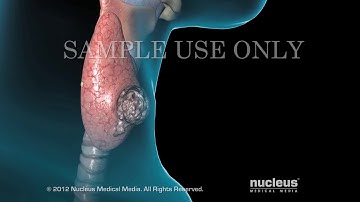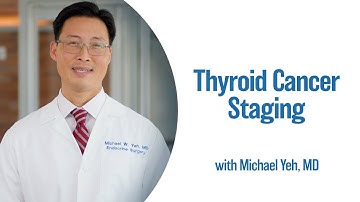Thyroid Cancer
What is Thyroid Cancer?
Thyroid Cancer
Thyroid cancer is a type of cancer that originates in the thyroid gland, a butterfly-shaped gland located at the base of the neck, just below the Adam's apple. The thyroid gland produces hormones that are crucial for regulating metabolism, heart rate, blood pressure, and body temperature. While a diagnosis of cancer can be frightening, most types of thyroid cancer have a very high cure rate, especially when detected early.
Understanding the Thyroid Gland
The thyroid gland is a vital part of the endocrine system. It uses iodine from food to make two main hormones:
- Triiodothyronine (T3)
- Thyroxine (T4)
These hormones travel through the bloodstream and affect nearly every cell in the body, controlling how quickly the body uses energy and makes proteins.
Types of Thyroid Cancer
Thyroid cancer is classified into different types based on the kind of cells from which the cancer grows. The prognosis and treatment approach vary significantly depending on the type.
| Type | Prevalence | Key Characteristics |
|---|---|---|
| Papillary Thyroid Cancer | ~80% of all cases | Develops from follicular cells. Tends to grow very slowly. Often spreads to lymph nodes in the neck, but is still highly treatable with an excellent prognosis. |
| Follicular Thyroid Cancer | ~10-15% of all cases | Also develops from follicular cells. More likely than papillary cancer to spread to distant organs, particularly the lungs and bones. The prognosis is still very good, though slightly less favorable than papillary. |
| Medullary Thyroid Cancer (MTC) | ~2-4% of all cases | Originates from the C-cells of the thyroid, which produce the hormone calcitonin. Can be sporadic (80% of cases) or familial (20%), linked to genetic syndromes like Multiple Endocrine Neoplasia type 2 (MEN2). |
| Anaplastic Thyroid Cancer | <2% of all cases | The rarest and most aggressive form. It is undifferentiated, meaning the cancer cells do not look or behave like normal thyroid cells. It grows very quickly and is difficult to treat. |
| Thyroid Lymphoma | Very Rare | A form of non-Hodgkin lymphoma that starts in the immune cells (lymphocytes) within the thyroid gland. It is often associated with a pre-existing condition called Hashimoto's thyroiditis. |
Common Symptoms and Signs
In its early stages, thyroid cancer may not cause any symptoms. As it grows, it can cause:
- A lump or nodule that can be felt through the skin on the neck.
- Changes to the voice, including increasing hoarseness.
- Difficulty swallowing (dysphagia).
- Pain in the neck and throat.
- Swollen lymph nodes in the neck.
- A persistent cough not related to a cold.
Risk Factors
Factors that may increase the risk of developing thyroid cancer include:
- Gender and Age: It is about three times more common in women than in men. It can occur at any age, but it is most often diagnosed in people between the ages of 30 and 50.
- Radiation Exposure: High levels of radiation exposure, especially to the head and neck during childhood (e.g., from certain medical treatments), significantly increase the risk.
- Family History and Genetics: A family history of thyroid cancer or certain genetic syndromes, such as Familial Medullary Thyroid Cancer (FMTC) and Multiple Endocrine Neoplasia (MEN) type 2A and 2B, increases risk.
- History of Goiter: Having a history of goiter (an enlarged thyroid) can be a risk factor.
Diagnosis and Treatment
Diagnosis typically involves a combination of the following:
- Physical Exam: A doctor feels the neck for lumps or swelling.
- Blood Tests: To check thyroid hormone levels and, for MTC, calcitonin levels.
- Ultrasound: To get a detailed image of the thyroid and any nodules.
- Fine-Needle Aspiration (FNA) Biopsy: A thin needle is used to remove a small sample of cells from the nodule for microscopic examination. This is the most definitive way to diagnose thyroid cancer.
Treatment options depend on the type and stage of the cancer:
- Surgery: The most common treatment. This can involve a lobectomy (removing one lobe of the thyroid) or a thyroidectomy (removing the entire thyroid gland). Nearby lymph nodes may also be removed.
- Radioactive Iodine (RAI) Therapy: Often used after a thyroidectomy for papillary or follicular cancer to destroy any remaining thyroid tissue and cancer cells.
- Thyroid Hormone Therapy: Lifelong daily medication (levothyroxine) is required after a thyroidectomy to replace the hormones the thyroid used to make and to suppress the growth of any remaining cancer cells.
- External Beam Radiation Therapy: Uses high-energy rays to kill cancer cells, typically for more advanced or aggressive cancers.
- Targeted Drug Therapy & Chemotherapy: Used for advanced cancers that do not respond to other treatments, particularly anaplastic and advanced medullary cancers.
View questions by category
Basics and Awareness
Understand thyroid function, the definition of thyroid cancer, epidemiology, and basic concepts like 'lazy cancer'.
Causes and Risk Factors
Explore the various causes, risk factors (genetics, lifestyle), and different types and risk classifications of thyroid cancer.
Symptoms and Detection
Identify typical and atypical symptoms of thyroid cancer, learn how to perform self-checks, and know when to see a doctor.
Diagnosis and Staging
Understand the complete diagnostic process for thyroid cancer, including key examinations like ultrasound, FNA biopsy, and staging.
Surgical Treatment
Common questions about thyroid cancer surgery, including surgical methods, risks, recovery, and post-operative care.
RAI and Other Treatments
Learn about non-surgical treatments, such as radioactive iodine therapy, active surveillance, targeted therapy, and radiotherapy.
Post-op Follow-up and Monitoring
Covers long-term health management after surgery, including medication, monitoring of key markers (Tg, TSH), and regular check-up schedules.
Prognosis and Recurrence Management
Information on survival rates, risk of recurrence, treatment for recurrence, and factors affecting prognosis for thyroid cancer.
Daily Life and Support
Answers to various questions about life after treatment, covering diet, medication, emotional management, and social communication.
Special Cases and Research
Discusses diagnosis and treatment for special populations (e.g., pregnant women, children) and the latest research advancements.
Videos for Thyroid Cancer

Mayo Clinic explains thyroid cancer
Mayo Clinic

Thyroid Cancer
Nucleus Medical Media

Thyroid Cancer Signs & Symptoms (& Why They Occur)
JJ Medicine

What Causes Thyroid Cancer | UCLA Endocrine Center
UCLA Health

Thyroid Cancer Staging | UCLA Endocrine Center
UCLA Health

Thyroid Cancer - The Nebraska Medical Center
Nebraska Medicine Nebraska Medical Center

Thyroid Nodules, Thyroid Cancer and Primary Hyperparathyroidism What GPs Need to Know
RACGP

Is Thyroid Cancer Fatal | UCLA Endocrine Center
UCLA Health

My First Symptoms Of THYROID CANCER!
The Patient Story

Thyroid Cancer (Papillary, Follicular, Medullary & Anaplastic) | Symptoms, Diagnosis, Treatment
JJ Medicine

Thyroid cancer | Dr. Rajshekhar C Jaka | Oncology Hospital in Bangalore -Manipal Hospital Whitefield
Manipal Hospitals

Delayed diagnosis of thyroid cancer #NowYouKnow #Shorts #Podcast
Al Jazeera English

What are the symptoms of thyroid cancer?
UW Health

Symptoms of Thyroid Cancer | UCLA Endocrine Center
UCLA Health

What is the Survival Rate for Thyroid Cancer? - Dr. Tjoson Tjoa
UCI Otolaryngology | Head & Neck Surgery

Papillary thyroid cancer is the most common type of thyroid cancer
Yashoda Hospitals - Hyderabad

Thyroid Cancer: what is my prognosis?
THANC Foundation

Thyroid Cancers
MedLecturesMadeEasy

I Was Really Tired All The Time - Lizzie | Thyroid Cancer | The Patient Story
The Patient Story

What You Need to Know About Thyroid Cancer
Mount Sinai Health System
How to Get $FAQ Rewards
We are seeking contributions from many people to reach 100 million questions. We will provide $FAQ token rewards to all contributors
- 1. Ask questions to earn $FAQ rewards
- 2. Provide API_KEY to earn $FAQ rewards
- 3. Random drops of $FAQ rewards when browsing questions
 What is the thyroid gland and what functions does it serve in the body?
What is the thyroid gland and what functions does it serve in the body?